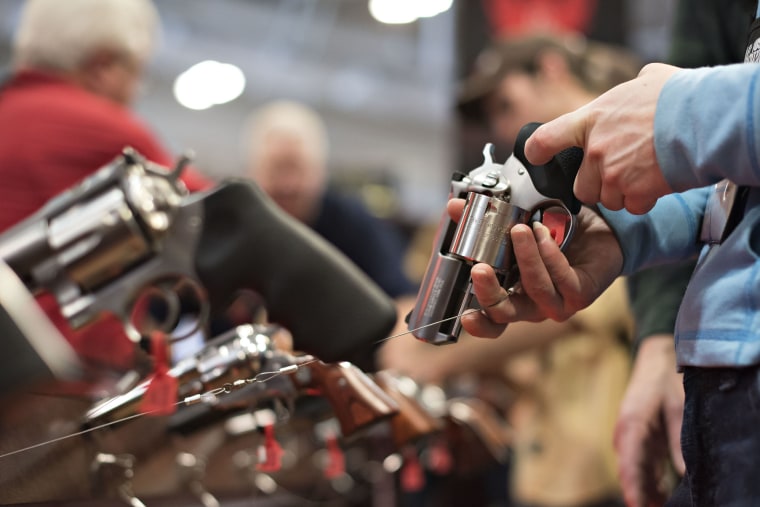The last few weeks in America saw black churchgoers slaughtered by a white supremacist who had no business with a gun, a cop murdered by a criminal who had no legal right to one, and more kids killed by firearms that were not properly stored.
But we haven’t seen a renewed debate on guns in Congress. One reason is the amount of money self-described “gun rights” groups are spending to elect allies who will do nothing -- except promote the financial interest of the beleaguered firearms industry. On Wednesday, we'll get a snapshot of what the industry plans to invest in 2016 presidential hopefuls when many of the candidates make their first official fundraising filing with the Federal Election Commission -- revealing just how much money they've raised backing the "gun rights" agenda.
The National Rifle Association alone spent $37 million in the 2014 elections, but at least that money -- given to political committees or spent directly in elections -- was disclosed to the public. The new way to play, as Washington gears up for 2016, is to funnel dollars to “dark money” groups that don’t have to say who gave them the money, or how much was given.
Obama showed great courage when he took on the gun lobby after Newtown. He should keep it up -- by signing an executive order that would require businesses with federal contracts to disclose their political spending.'
The gun industry, its Washington lobby and their wealthy backers are actively seeking ways to conceal their political influence, hide their donors, and circumvent transparency laws that the most conservative Supreme Court justices support. Justice Scalia -- a hunter and true friend to the Second Amendment -- wrote in the Citizens’ United decision that “requiring people to stand up in public for their political acts fosters civic courage, without which democracy is doomed.”
With Congress about as unlikely to fix the campaign money mess as it is to address gun violence, we need to look elsewhere. The White House is a good place to start.
President Obama showed great courage when he took on the gun lobby after the Newtown shootings. He should keep it up -- by signing an executive order that would require businesses with federal contracts to disclose their political spending.
This would mean that gun manufacturers who supply weapons to our armed forces and other federal entities would have to show the public that they are the best supplier for the job, not just the most active political players (and the most eager to install Second Amendment extremists in congressional seats).
While this step wouldn’t stop the gun lobby from spending millions in dark money, an executive order would be a valuable first step in increasing transparency in our politics. Just as legal loopholes now allow felons, domestic abusers and other dangerous people to buy guns without background checks, loopholes in campaign finance laws allow big money to secretly influence government policy -- and undermine public confidence in our democracy.
After the Emanuel AME church shooting, we saw presidential candidates refusing to acknowledge that it was an act of racism and skirting any questions about guns. This wasn’t just to appeal to their base. Their silence was also a product of their obeisance to the NRA and their reliance on its money and influence with gun extremists who are often single-issue voters.
The years I spent running a gun safety group were roughly bracketed by the Tucson and Newtown mass shootings. In those three years, nearly 100,000 Americans were killed with guns. The economic cost, as if it mattered, has been estimated at nearly $700 billion dollars. But the true hole guns have blown in America -- the anguish of the living, our diminished national sense of self -- can neither be fathomed nor filled.
The least the firearms industry can do is tell us how much it costs to keep things this way.
Mark Glaze is the former executive director of Everytown for Gun Safety, the country’s largest gun violence prevention group.
